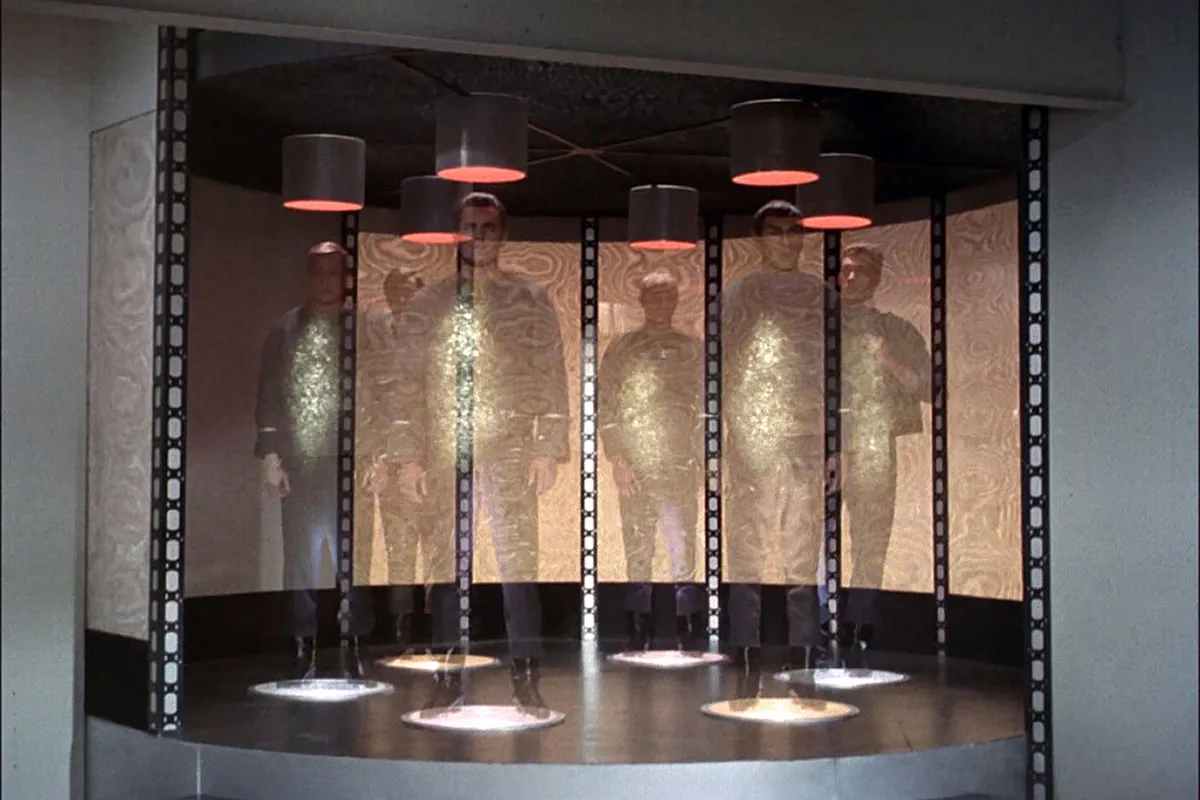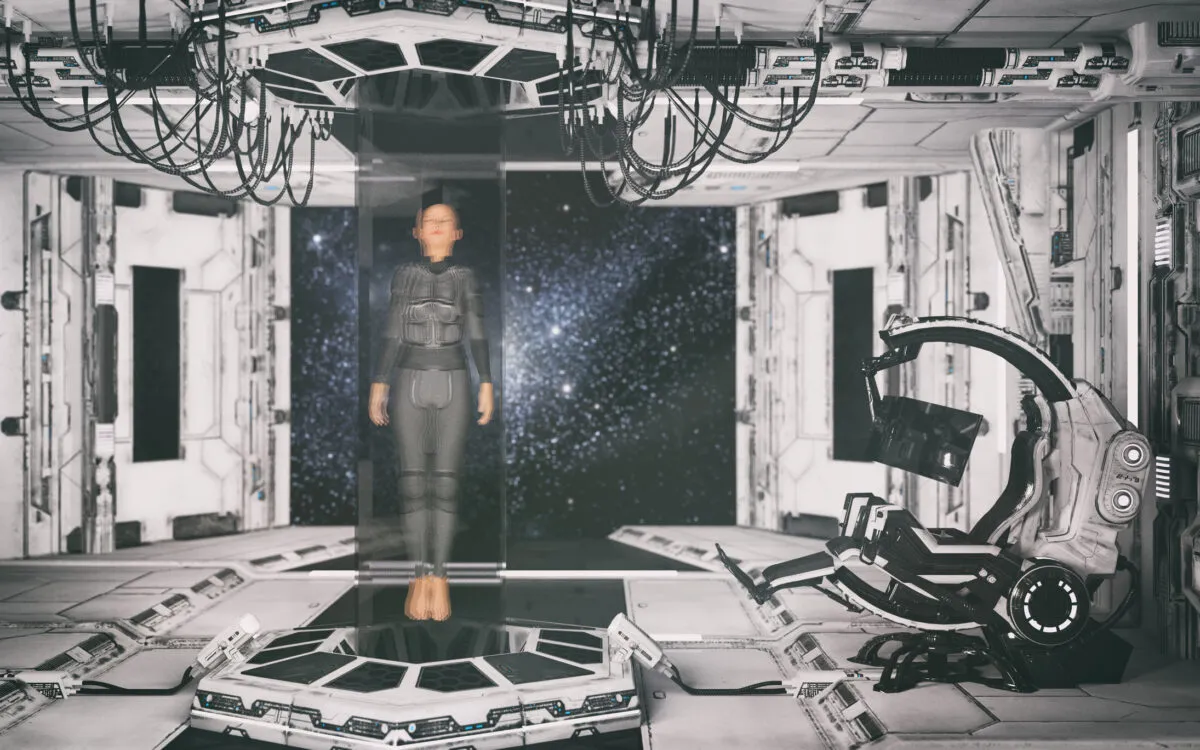We're all aware of the concept of human teleportation, whereby a human being can be instantly transported to a far away location via the linking of separate teleportation machines.
It's a classic Hollywood trope, seen throughout various science fiction and space movies and perhaps most notably depicted in Star Trek.
More from Marcus Chown:
- What is gravity?
- Mind-blowing facts about the Universe
- What would happen if you fell into a black hole?

And it certainly stimulates the imagination. Picture a world in which a journey from the UK to Sydney Opera House lasted the blink of an eye.
Or imagine a time in which human geologists could quickly nip over to Mars to collect a rock sample and return to their lab to study it in a matter of minutes.
Human teleportation is an amazing prospect, but will teleportation, as seen in Star Trek, ever be a real possibility?
It’s always risky to say “no, never”. But it is has to be said that teleportation is extremely unlikely.
A Star Trek-style transporter must do three things: firstly, pin down the position and type of every atom in a person’s body; then, transmit that information – presumably at the speed of light – to a remote location; and, finally, use the information to assemble atoms into a perfect copy of the person.

Until relatively recently, it looked as if the task would fall at the first hurdle because, according to quantum theory, it is impossible to know everything about an atom with 100% certainty.
However, physicists have discovered a trick called ‘quantum teleportation’, which ingeniously allows them to create a perfect copy of a quantum particle at a remote location.
In fact, they can now achieve the feat at multiple locations. This is called ‘quantum telecloning’,
However, the Achilles’ heel of the Star Trek transporter is neither pinning down the position of every atom in a person’s body, nor assembling an exact copy (although both would be very difficult).

It is transmitting the volume of information needed to describe a person that presents the major hurdle.
Billions of times more information is needed to transmit the make-up of a human being than is needed for the reconstruction of a TV image.
The obvious way to send it is as a series of binary ‘bits’. If the information is to be sent quickly, the pulses must be short.
But ultra-short pulses require ultra-high-energy light.
As Arthur C Clarke has pointed out, beaming up Captain Kirk would take more energy than there is in a galaxy of stars!
So, sadly, Star Trek-style teleporters aren’t likely to appear any time soon.
